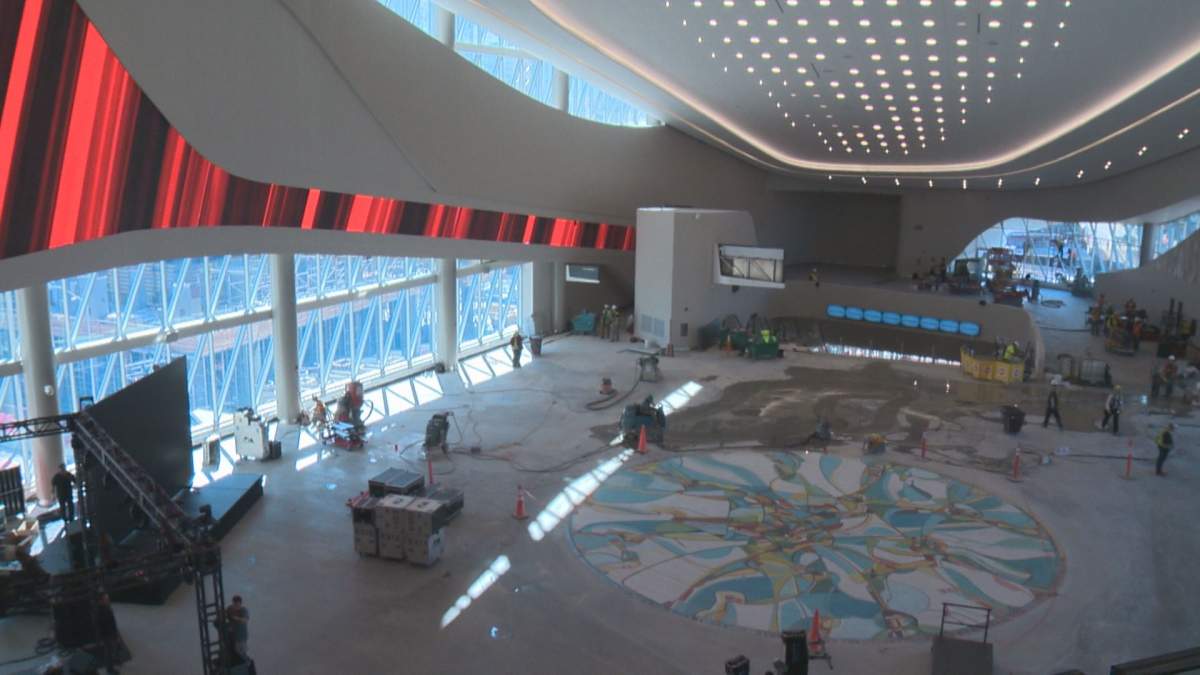After fans noticed that the Calgary Flames are the only Canadian NHL team that doesn’t acknowledge Indigenous land before games, they are calling on the team to do more to recognize Treaty 7 nations on home ice.

Calgary is one of the traditional territories of the Treaty 7 nations, which include the Blackfoot Confederacy (Siksika, Kainai, Piikani), the Tsuut’ina, the Îyâxe (Stoney) Nakoda Nations and the Métis Nation (Region 3).
The peace treaty was signed in the 1870s with the federal government after European colonizers came and decimated the local buffalo population, starving the First Nations that relied on them for food, clothing and other basic necessities.
Conflicts such as the Battle of Little Bighorn, which saw the U.S. Army be defeated, also may have helped to spur the need for a peace treaty between the First Nations and the federal government in Canada, with Canada facing the prospect of potential conflict with a large group of united First Nations.
Blackfoot nations, which include the Piikani, were involved in the Battle of Little Bighorn since their traditional lands extend from southern Alberta to northern Montana.
For Riel Houle, a Piikani First Nation member, the treaty represents the hardships his ancestors had to go through.
“In our ways, there is a term to describe the sacred agreement between the two governments: our government and the Canadian government. Once you create that sacred agreement, you protect each other,” Houle told QR Calgary.
“Because (Treaty 7) was not a surrender treaty, the agreement was to walk beside each other and work together.
“Whether it be Indigenous, Blackfoot, Asian, Black… We’re very multicultural and we have to always protect each other.”
Lowa Beebe, a “die-hard” First Nations Flames fan, said she is disappointed with the Flames.
“It is disheartening to see an NHL team and the only one in Canada that is not recognizing the land that they are on,” she told Global News.
“It gives honour to those Indigenous people who were the true stewards of the land and a simple land acknowledgment and awareness is something I think most organizations should be doing.
“It’s also honouring those people who didn’t give up their lands, who didn’t give up their title to those lands.”
In an emailed statement to Global News, the Calgary Sports and Entertainment Corporation said it is “working closely” with some Treaty 7 representatives to put on sports events celebrating Indigenous ancestry.

Get breaking National news
This includes the Flames’ Indigenous Celebration Game on Feb. 16 and the Roughnecks’ Every Child Matters Game on Jan. 28.

“Land acknowledgments are part of those discussions. It is important that we continue to learn from these conversations and ensure we speak with all seven nations prior to any formal announcement,” said Peter Hanlon, vice-president of communications for the Calgary Sports and Entertainment Corporation.
The City of Calgary’s Indigenous Relations Office (IRO) told QR Calgary while it encourages external organizations to acknowledge Treaty 7 nations at their events, it does not request them to do so.
“It is not within the mandate of the IRO and the Calgary Urban Affairs Committee to help external organizations to do land acknowledgments or to request for them to do so, however, if they wish to pursue this there is a guide available on Calgary.ca,” a city representative said in an email.
The Flames’ relationship with Indigenous communities is in stark contrast with the Edmonton Oilers, according to Beebe.
“It’s really nice to see my uncle Wilton Littlechild, who is a former Truth and Reconciliation commissioner, doing that… There’s a sense of honour in that and they’re not trivial to our people,” Beebe said.

“Each time I hear one, I do feel that we’re being honoured and being understood.”
Houle agreed, saying the Flames doesn’t do much to acknowledge Indigenous ancestry.
“I’ve always seen ex-Chief Willie Littlechild acknowledge the (Treaty 6) tribes. I was really touched when I saw that, including the authentic cultural displays and power dancers that were there,” the Piikani Nation member said.
“When I see the Calgary Flames, I don’t really see as much coming from them. They’re smack dab in Blackfoot territory.
But the Flames has to do more than just acknowledge the land to reconcile with Indigenous peoples. Beebe said the team needs to bring awareness of Indigenous issues, such as the lasting trauma of residential schools, to Calgarians.
“I think Canadians are being reminded that our treaties were signed before and after Canada was a country… Especially with the news in the past few weeks, we have more awareness of the Truth and Reconciliation commission and their report,” she said.
“This is not centuries ago. I’m only two generations from the signing of Treaty 7, so this is something that is still real. We also have many things going on within our communities.
“The more awareness that is out there, the more understanding we have for our people.”
Houle suggested adding artistry and architectural elements from different Treaty 7 nations to the new hockey stadium that will replace the aging Saddledome.
When Edmonton’s new downtown arena was built, First Nations artist Alex Janvier was commissioned to create a large mosaic on the floor of the cavernous Ford Hall concourse leading into Rogers Place.
“When I was younger, I was always told that people own land… But in our culture, it’s flipped. The land doesn’t belong to you, we belong to the land,” he said.
“If the Calgary Flames can take a step forward and do more, that would be great.”

“There are Calgary Flames fans here in the Piikani Nation and a lot of people here go to their games, and I think if they’re able to acknowledge Indigenous art, architecture and culture, it would be great.”
Rob Shotclose, Bearspaw First Nation’s chief executive officer, told QR Calgary in an email that “it is about time” that all signatories of Treaty 7 were acknowledged at Calgary Flames games.









Comments
Want to discuss? Please read our Commenting Policy first.